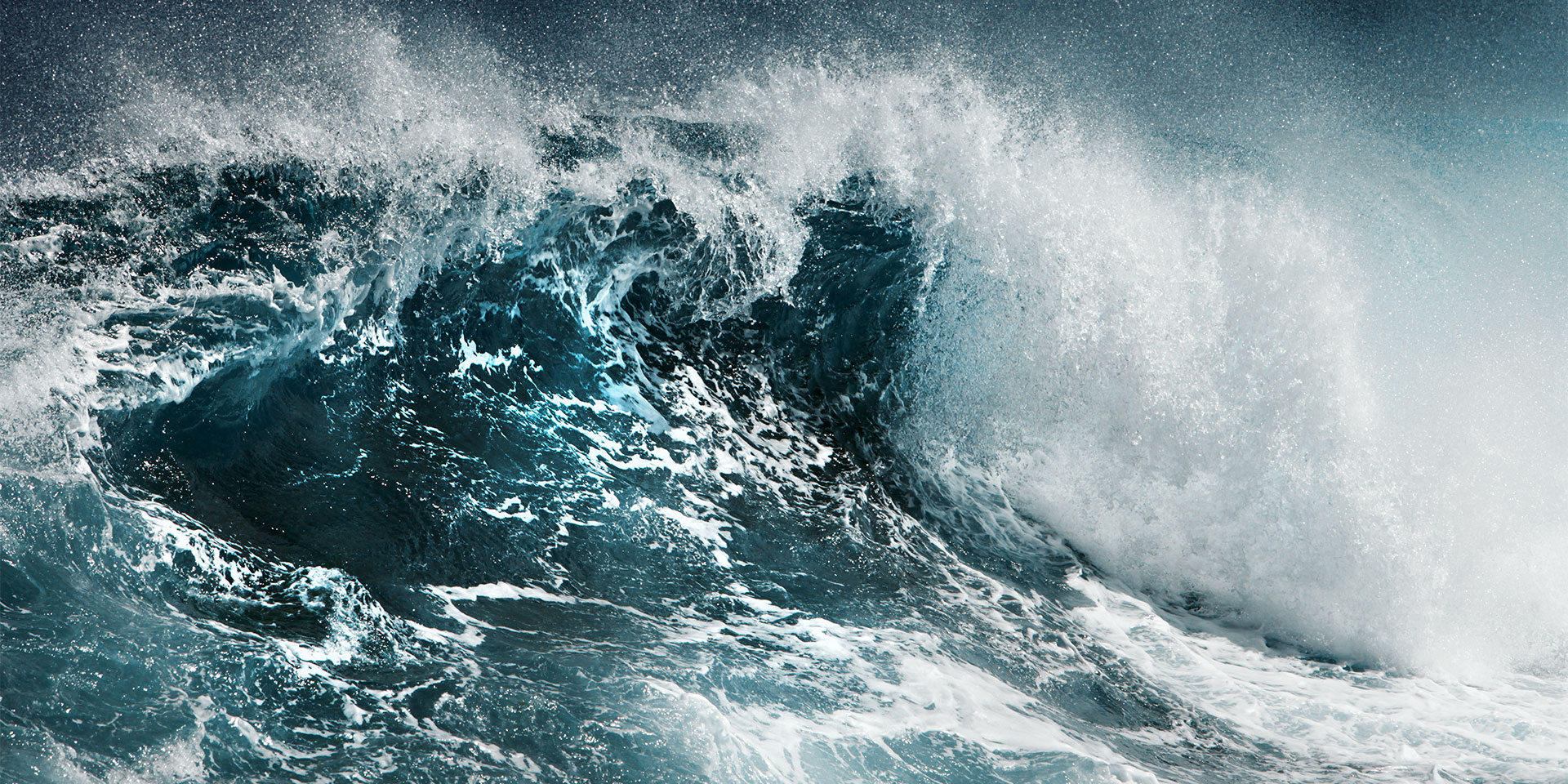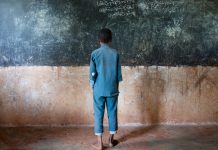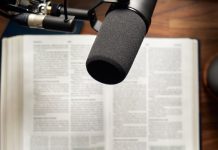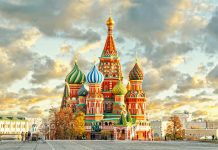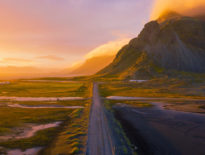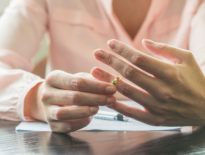For Australians, the islands in the South Pacific Ocean (Solomon, Vanuatu, Fiji, Papua New Guinea), although spread across thousands of kilometres, are a kind of backyard. And many Christians see these islands as their mission ground.
I have almost never come across a teacher, pastor, or doctor who did not do their internship on the islands. The simple spirituality of the local people refreshes the faith that is so often tested by the monotony of Western life. Sometimes uncommon confrontations with the occult happen. Or extraordinary interventions of God’s power in catastrophic situations, as in the case of the saving of pastor Niels Watts after the plane he was travelling in crashed into the ocean. The star that appeared to him for a moment on that stormy night testifies, in a charming way, to hope and salvation.
AB: How did you come to work as a missionary in the South Pacific Islands?
NW: Someone had been called to go to Papua New Guinea and was not able, and I said: “Who would not like to go there?” The person heard me and I was called for an interview. This is how I began my missionary experience. I am very happy I went to the islands.
AB: How long did you work there?
NW: In total, I worked for eleven years in the Pacific islands, in three different periods. The first time I worked in Papua New Guinea for four years, then for two years in Fiji, where I taught at Fulton College. So, six in total. Thereafter, I came back for a period of two, respectively three years.
AB: What are your memories of these years?
NW: For me, it was an extraordinary experience. It helped my faith grow because those people had a simpler spirituality and were more receptive towards the Gospel than people in other places. I remember God leading us in areas that we could only reach with the mission’s speedboat. We were called by villages that had no church to help people. We would clean up a piece of land and build a house for an older person. At night, we would hold gatherings. We had a generator, a beamer.
I remember that, a few times, when we arrived in one of those new villages, the chief of the village would say he had had a dream the night before about Jesus coming back to earth. They said: “I was told in my dream that someone would come to teach me about this. And today you came!” This happened a few times. The most important memory, however, is related to the period when we lived in Honiara, the capital of the Solomon Islands. In my second year there, I had an interesting experience. I was responsible for the inhabitants of the Vanuatu Islands, a population spread across smaller islands in the Pacific.
I went to an island and held classes with my wife who had joined me. I was supposed to fly, on Saturday evening, to Port Villa, the capital of the Vanuatu Islands, to take the plane to Australia the following day, to attend some meetings. She would usually join me but this time she was asked to stay there and hold some gatherings the next morning. She had been included in the schedule without checking with us first. She decided to stay so I left alone. I boarded the small plane after sunset…
AB: Was it a regular flight?
NW: Yes, it was a commercial flight. I didn’t know anyone else. It was a plane with two propeller engines, which could hold 19 passengers. I sat near the exit so I would not have to walk on the isle of the plane that was not very high. The pilot took off and said nothing. He did not welcome us on board the plane, he did not tell us to fasten our seatbelts or show us where the lifejackets were. He started the engines and took off. It was a one-hour flight. During the first part of the flight we had good weather. We could see the beautiful light after the sunset.
It was all good. Then we came across a powerful storm and the plane started to shake badly. I tightened my seatbelt and prayed God would protect us. After one hour, some of the passengers started looking at their watches because we should have arrived by then. We could not see any lights. The pilot said nothing. I saw that he kept changing course so I thought he might be lost. I sat there and I prayed. I was thinking about my wife and family. At a certain point the pilot accelerated strongly. It seemed as though he wanted to go higher, as if he had seen a mountain in front and was trying to avoid it, I don’t know. Then he stopped the engines and there was complete silence. After a few seconds I felt the impact. We were thrust forward. Luckily, I had fastened my seatbelt tightly.
AB: What had actually happened?
NW: Next, the door of the pilot’s cabin and the rest of the plane opened and water started coming in. It was like a nightmare. We had crashed into the ocean. In a few seconds, the water had reached the level of my knees. A man standing next to the door and another one took off their seatbelts, opened the door and jumped outside. The plane was half immersed in water.
I managed to get out and jump into the water. It was raining. There were waves and it was windy. The water was not extremely cold. Semitropical. But it was pitch black. No moon, no stars. I managed to climb on one of the wings and to get out of the way of the other passengers that were screaming and trying to get out. I stood there for, probably, just a couple of minutes. Then the plane started moving and sinking. I took off my shoes. I moved away and watched the plane sinking.
AB: You must have gotten the feeling that there was no way out.
NW: Nobody was getting out anymore. The rotating light in the back was still shining and then it vanished into the night. The only good thing was that, at a distance, probably 12-13 kilometres away, we could see the city lights. We knew where we were supposed to be headed, but knew nothing else. Only two people had lifejackets on.
I managed to help a local from Vanuatu to put on his, because it was half torn. It had a light on the shoulder, like plane lifejackets do. The other man had no light, but he had a whistle. It was all we could use. Neither I nor the three other people had managed to put on our lifejackets.
AB: What did you think of doing next?
NW: God inspired me to take my role as a pastor seriously. While the waves were crashing against my face, the wind was blowing, and the rain was falling, I yelled as loud as I could: “The situation is critical. I am a pastor and I would like to pray for us.” I heard a few people yelling in the dark: “Yes, please do!” While I was struggling to keep my head above the waves, I said a short prayer in a loud voice. I prayed God would help us reach the shore or send someone to save us.
We started advancing together, the six of us, towards those lights. I believe we were all swallowing salty water, the waves were hitting us in the face. After a few hours the waves calmed down. From time to time, it rained for a short while so we lay on our backs trying to catch a few drops of sweet water.
AB: Did all six of you know how to swim?
NW: Luckily we all knew how to swim. It seems that a few other people who had managed to exit the plane did not come with us. I believe one of them could not swim and we don’t know what happened with those two men, but they did not make it to the shore. They did not come with us. I yelled in the dark that we should stick together but they did not stay with us.
AB: So you set out with six people. Did you manage to stick together?
NW: After an hour and a half, a man, a British anthropologist, vanished. He was with us and was swimming in the back of the group. I think he was injured during the impact. I had a broken rib, but this was the least of my problems. I think, due to the shock, I only felt the pain when I reached the shore. He gave up.
I remember yelling at him in the dark not to give up, to try to stay on the surface. I assumed someone would come get us. The people at the airport should have known, the ones at the mission were waiting for us, so I assumed someone would take the boat and come looking for us. No one came. We kept swimming against the current, which meant we were not making a lot of progress. I think that after three hours I was yelling at the others. I did not know who they were anymore.
AB: How do you know how long it took?
NW: I had a waterproof watch. If I got close to the man with the light I could tell the time. I had preached that day and used verses like the one from the Gospel of John that says that if we believe in Him, even if we die, we will have eternal life. I felt the nudge to testify before the others, so that, were I to die, they would have the opportunity to accept Christ. Everyone was quieter and was swimming more slowly.
I believe that the hope that someone would come get us was fading away. I kept on swimming and, after four hours, I was exhausted. I was cramping, I had swallowed a lot of salty water. I decided I could no longer go on. I was exhausted. My mouth and tongue were swollen. I could no longer use my arms, so I turned on my back for a bit. I rested my arms and only moved my legs. I was thinking that I did not advance much and I was about to die.
I was not afraid of dying. I praise God that I had the certainty of salvation. I praise God for His promises. I knew that, if I were to die, the next thing I would see would be Jesus’ return. I prayed for my wife and children and surrendered to God. I seriously thought of going under, opening my mouth and dying. I was not discouraged, but exhausted.
While I was wondering if I should do this or move on, right then and there, for the first time that night, for 5-6 seconds, right above my head, the clouds scattered and I saw a bright star. It was right above my head. Some people would say it was a coincidence.
For me it was providence. Through it, God told me: “You are not alone. I haven’t forgotten you.” It was a huge encouragement. It gave me strength to carry on. I prayed that He would help me be a blessing for the people if He wanted me to live. To help me to praise Him more.
AB: We usually can see thousands of stars but that does not help much. However, in that moment, just one was enough to renew your strength, faith, and courage.
NW: It’s very interesting. I kept swimming and I asked God for a reason for people to praise Him. These things came to my mind and I realized that, should I die, this would be a victory for Satan. I prayed: “God, don’t let Satan win”. In that moment, I did something that now makes me smile. I raised my clenched fist into the air and said: “Satan, get out of the way. Jesus is stronger than you. He will bring us to the shore.”
AB: Did the others hear that too?
NW: No. We kept on swimming. After five hours I started to feel exhausted again. I had never swum more than 100 meters in my life. Five hours after the plane crashed we reached the inside of a bay. On each side there was a peninsula. To our left there was a small light, to the right a bigger one. I believe that the bigger light was the airport that was located on one of the peninsulas.
I was wondering where we should go: to the left or to the right? When you swim at water level, at night, it’s hard to tell the distances. I remember praying: “God, show us where to go and help us agree.” I asked the others: “Where do you think we should go?” They said to go to the left: “Towards the bigger light?” “No, towards the smaller one.”
I later found out that, had we gone towards the bigger one, we would have entered a strong current that would have drawn us into the rough sea, with a lot of coral, to a place called the Devil’s Point, because of the concentration of sharks there. I praise God that we went in the good direction. We kept swimming and, after another hour, we heard noises. Lastly, we saw a grey line as we were approaching the shore. I knew the beach was close. It took us another half an hour to reach the shore.
When we were approaching the shore I started to feel the exhaustion again. I was cramping, I had swallowed even more water, and I was very tired. I started thinking: “When we reach the shore we would be carried away by the waves”—because I could hear the waves. “There will be corals and I will be crashed against the rocks. I will probably cut myself in the corals and will step on poisonous fish.” All these negative thoughts filled my mind.
I believe the Lord told me to remove all those thoughts. I wouldn’t care if I was bandaged from head to toe and stayed in the hospital for a month. It was all worth it, if I reached the shore. Thank God that, when we came near the shore, the weather was no longer bad. The sea had calmed down and the corals were smooth not sharp. I could touch the corals and sit on them. Right after doing that, a few hundred meters away from the shore, I felt my legs cramping.
I was in great pain and I thought that, had that have happened just 5-10 minutes before, I would have not reached the shore. There was an anchored boat nearby. We knocked on it, but there was no one there. We were only 200 meters away from the shore. We swam to reach the shore and collapsed on the beach. There we found a man living in a maritime container, who had left the lights on outside. I later found out that he had left it on because he had heard on the radio that a plane was missing. He was thinking of the survivors.
AB: Amazing.
NW: We knocked on his door at 1:30 in the morning. We had swum for 6 and a half hours. We looked like the walking dead. I am sure I was pale. I was cold, I was shaking. I knocked on the door and woke him up. In the house, he had a phone and warm drinks for us. He gave us clothes and blankets. We called the ambulance and the police.
AB: Did you have health problems after this? Did you have to stay in the hospital?
NW: I was in the hospital for just one night, for observation. I was wrapped in blankets, shivering for three hours. I was very close to hypothermia. All the warmth had left my body after six-and-a-half hours spent in the water. In the morning following the crash, after I came out of the hospital, I was heard by the police and the air authorities. The telephone started ringing. I was called by newspapers, radio stations in Australia, Canada.
AB: When I was researching for this interview, I saw that The Guardian published an article in which they mentioned you and included some of your claims.
NW: While in the water, I prayed: “God, if I make it out of here alive, help me praise You more. Give me opportunities to praise You and to glorify You after this experience.” All the interviews, even the ones taken by cynical reporters from Australian radio stations, all the newspapers—I also had a TV interview—mentioned faith and prayer as key factors. I praise God He saved me. He does not always save people. I thank Him for having the privilege to survive this experience that has become an anchor to my faith.
AB: Did you ever try to swim for 6-7 hours again after this?
NW: One month later, I was on the Solomon Islands. I asked someone to take a canoe so I could jump out of it and swim for a bit while they were fishing. After half an hour, I was exhausted. I was only trying to stay afloat. I did not even swim hard.
I don’t know if you’ve ever tried swimming without holding on to something, without touching the bottom of the sea for more than half an hour, without being a good swimmer. You cannot relax. You have to stay afloat all the time. Add to that six hours of swimming at night, on a stormy sea. I would have stood no chance without God’s power.












